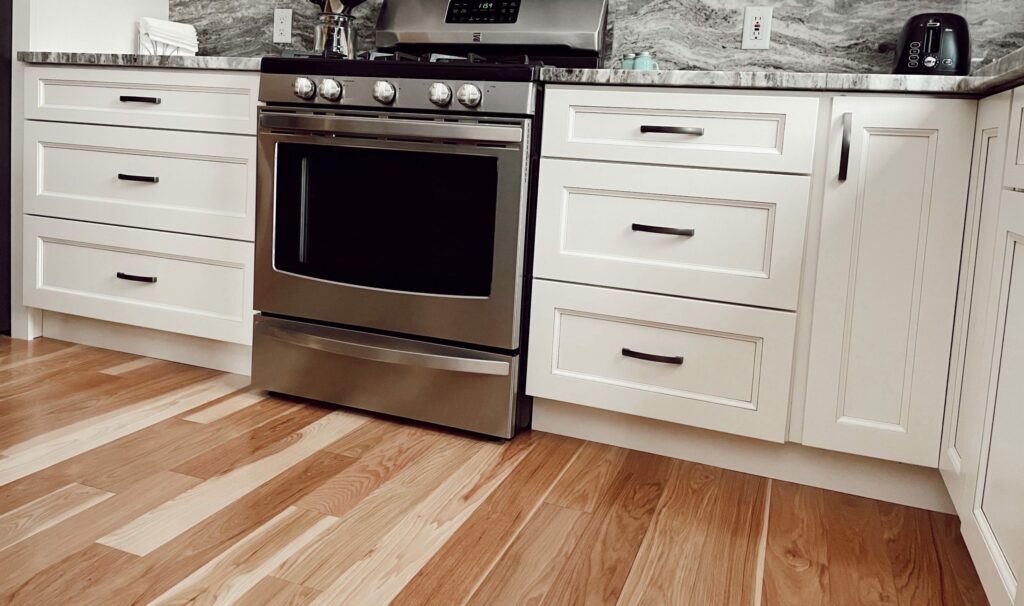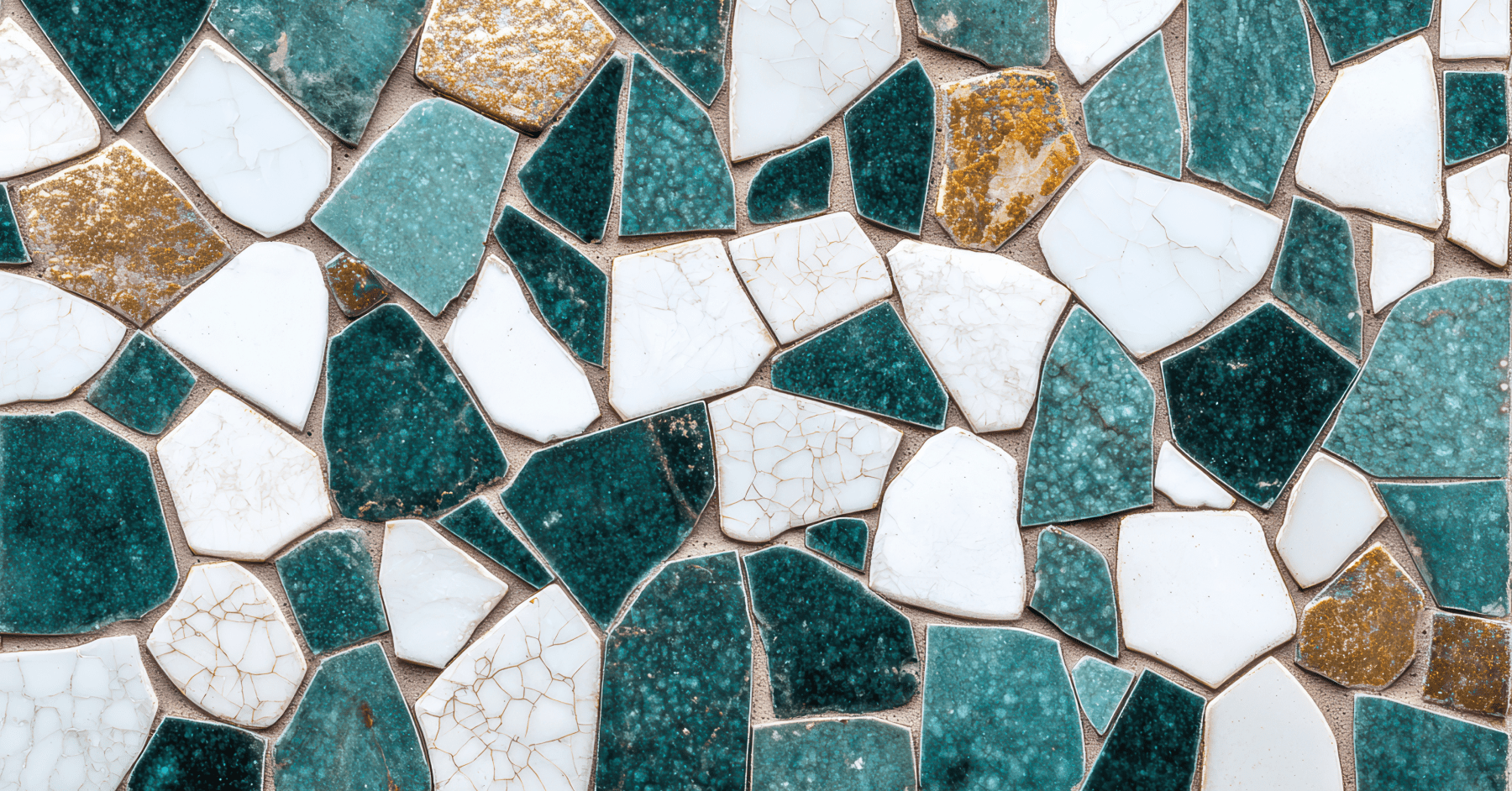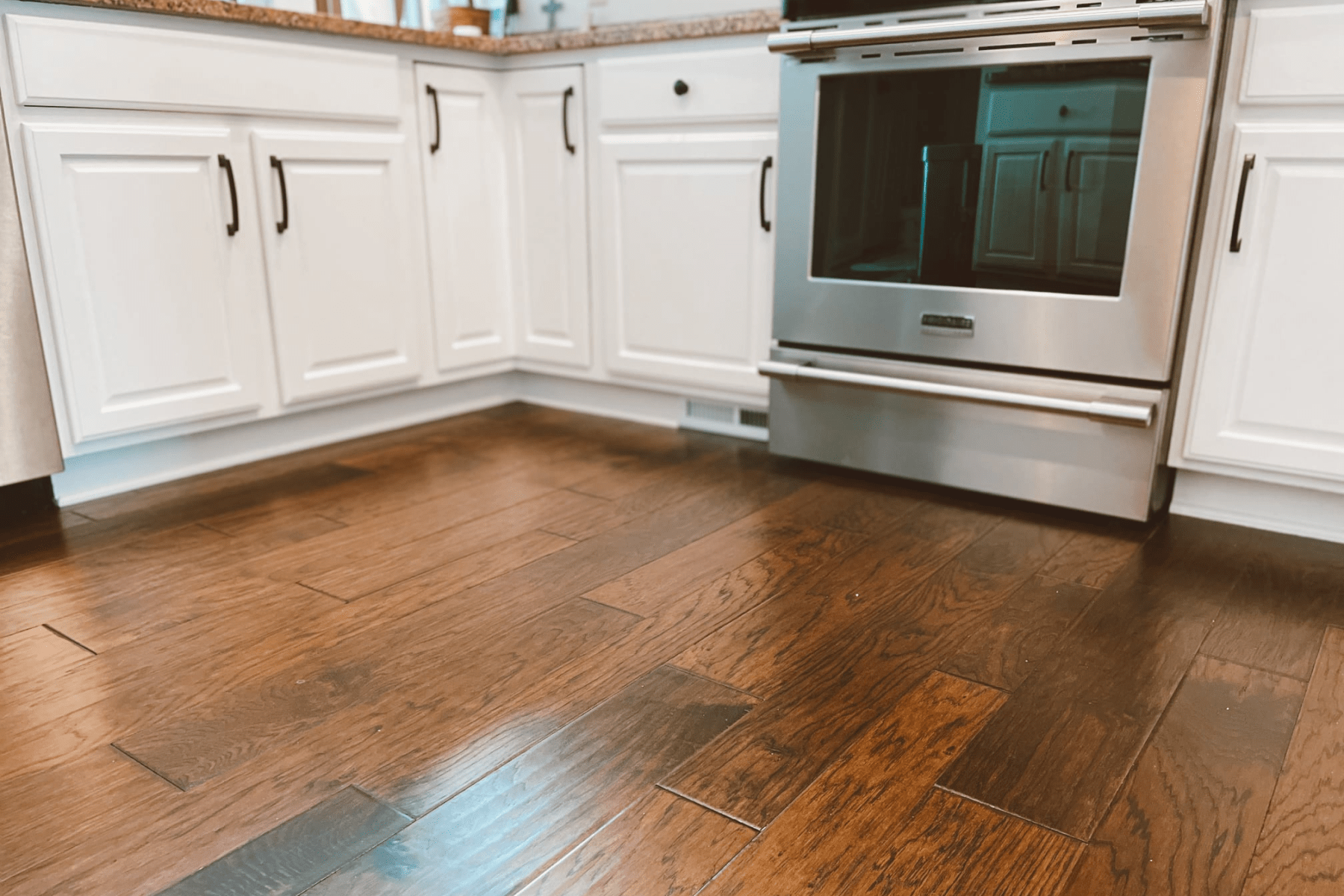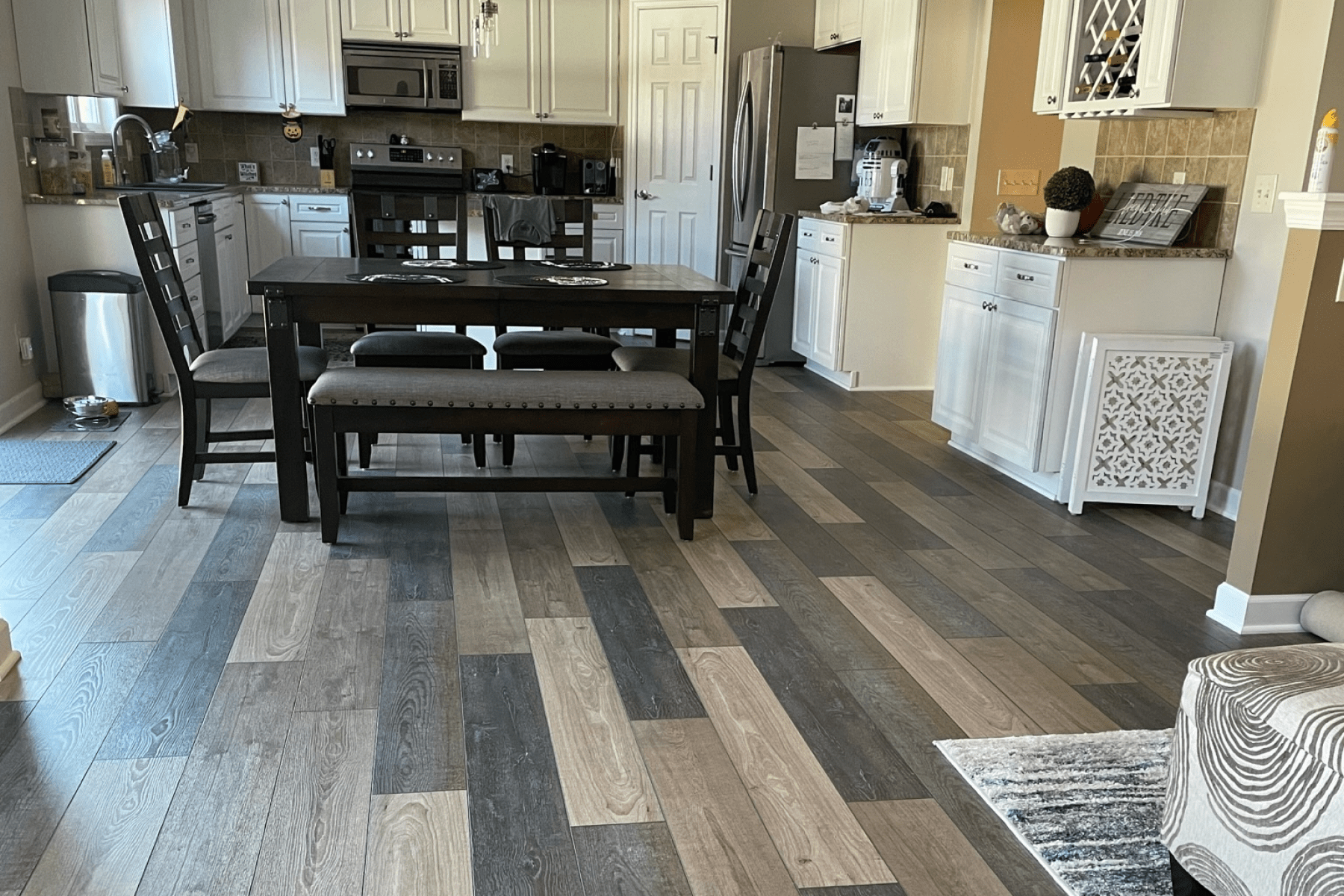Assuming you’re familiar with Ohio summers, you understand walking outside and feeling like a balloon being inflated with the summer heat and moisture. For lack of better words, that’s how humidity and hardwood floors interact. Since 2008, Floorscapes has been trying to help homeowners in Northeast Ohio understand how hardwood flooring reacts to humidity and Ohio’s drastic seasonal changes.
How Humidity Affects Wood Flooring
We’re not a team of scientists, but if we were, we’d tell you that wood is hygroscopic. Instead, we’re going to tell you to think of a sponge. Much like a sponge, hardwood flooring absorbs moisture from the environment and expands. Alternatively, when moisture isn’t present, the flooring releases moisture and contracts.
Now that technicalities are out of the way, we’re going to tell you how humidity impacts wood flooring.
The effects: humidity and hardwood floors
Humidity affects each type of wood floor differently, from solid vs. engineered hardwood to oak vs. Brazilian cherry. Reputable hardwood flooring installation companies know how to account for Ohio weather fluctuations and wood variations. This knowledge is reflected in the flooring installation process, from acclimation to expansion gaps. When humidity isn’t accounted for, it’s comparable to wearing your tightest pants on Thanksgiving. Issues can include:
- Floor Buckling: Humps and uneven surfaces due to the floor lifting and separating from the subfloor
- Floor Cupping: Results in a concave floorboard due to a moisture imbalance that causes a floor plank to swell along the edges
- Floor Crowning: Visually opposite to cupping, floor crowning is often due to excess moisture on the floor surface.
- Mold and Mildew: Ew. Anytime moisture is trapped within tight confinements, you can find unwanted friends like mold and mildew.
Ideal Humidity for Hardwood Floors
In a perfect world, the ideal humidity for hardwood floors is between 30% and 50%. If you have a thermostat that accounts for humidity, that is AMAZING. If not, meat thermometers won’t work in this case… unfortunately. Here’s what you can do:
- Run the Air Conditioning Regularly: Power bills can get gnarly, but your flooring will thank you.
- Invest in a Dehumidifier: From whole-house dehumidifiers to standalone dehumidifiers, get that extra moisture out of the air, especially in areas prone to moisture.
- Circulate the Air: Ceiling fans, oscillating fans, attic fans; you name it, keep it running. The more the air circulates, the better.
Need Some Hardwood Flooring Help?
Whether you’re shopping for hardwood flooring products, ready to install a new wood floor, or need some help with your current floor, support your local floor-ist by contacting Floorscapes.





